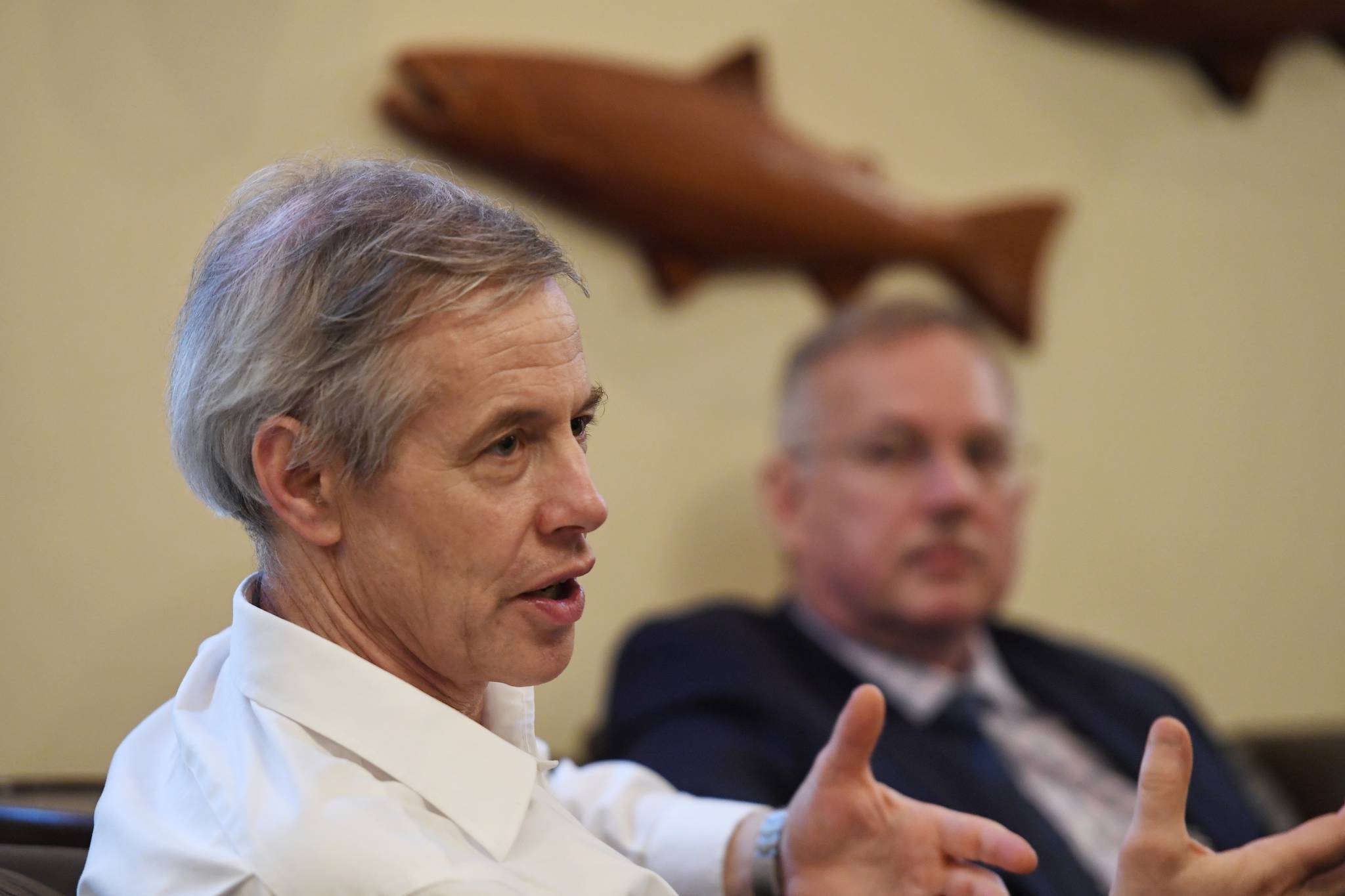The Alaska Legislature’s current crime bill is the anti-Senate Bill 91.
Instead of striving to reduce sentences and save the state money by imprisoning fewer people, House Bill 49 swings dramatically in the opposite direction, some of its drafters said Thursday.
Rep. Chuck Kopp, R-Anchorage, a member of the committee that negotiated between the House and Senate’s visions for the bill, said many more people will be imprisoned as a result of this bill.
“We will be shipping prisoners out of state,” Kopp said. “There’s no doubt about that. And Alaska may be building a new prison in the future.”
HB 49 is still a few steps away from becoming law, but legislators said Thursday that the version of the bill introduced Thursday will not undergo any substantial changes before it’s passed. Mainly, the bill reverts sentences to how they were prior to SB 91, which passed into law in 2016 and reduced many sentences in an effort to incarcerate fewer people and save the state money.
Senate President Cathy Giessel said this bill even goes “beyond Senate Bill 91,” cracking down harder than the state was prior to SB 91 on crimes such as sexual assault.
[Residents express frustrations, stories of Juneau crime wave]
Kopp said it’s still not clear exactly how much this bill will cost. He said it could at least cost $50 million as soon as the next fiscal year, and that opening up the previously closed Palmer Correctional Center could push the cost above $100 million. It’s unclear when those costs will come down, he said.
Rep. Matt Claman, D-Anchorage, was the co-chair of the conference committee that negotiated the bill. He said HB 49 is a first phase, and that next session (or even to a small extent in the budget this session), there will be a major focus on funding treatment programs to help those with substance use disorders.
Claman had a word of caution about what this bill could do if there aren’t smart treatment programs put in place in the near future.
“I think there’s a very real risk, if we don’t make wise public safety investments, and that includes rehabilitation, we could very well find ourselves in exactly the place we were three years ago, which is saying, we’re seeing prison costs and prison growth growing at astronomical rates and not seeing any improvement in public safety,” Claman said. “That’s a real risk.”
The state used to send inmates out of state but stopped in 2012 or 2013, DOC Administrative Services Director Sylvan Robb told the Empire in February. The main reason for stopping this practice, she said, was because the state built Goose Creek Correctional Center north of Anchorage to provide more room for inmates.
Some around the state have cautioned against sending inmates out of state, particularly to private prisons. Critics including Juneau reentry expert and Haven House founder Kara Nelson have said private prisons in the Lower 48 have bad health care and expose Alaskan inmates to criminals in other states who spread criminal practices.
HB 49 also gives judges a little more control over whether they can release defendants prior to their trials. The Pretrial Enforcement Division, which is a program through the Alaska Department of Corrections, was installed as part of SB 91 and includes an electronic program that rates defendants on how likely they are to commit another crime while awaiting trial.
This risk assessment tool was essentially weighted when given to judges, forcing them to give it more attention. Now, as explained during Thursday’s conference committee, the risk assessment tool will be one of 12 factors for judges to consider instead of being the most important one.
[Has Juneau’s crime wave peaked?]
The bill’s timeline
Giessel said the bill will go to Legislative Legal Affairs this weekend, where the Legislature’s legal experts will go over it with a fine-tooth comb. They’ll make sure there are no glaring errors, and Giessel said that at the earliest, the bill will be back to lawmakers to read on Monday.
Speaker of the House Bryce Edgmon told reporters Thursday that he expects the House to convene at 3 p.m. Monday and vote on the bill then.
“We want to show our commitment to act decisively on the bill,” Edgmon said. “We have been immersed in this subject matter for a long time, it seems. It’s complicated, but when you break it down into bigger pieces, those pieces I think have been vetted time and again by nearly every member of the House in some form.”
Giessel said she hopes to give senators a week to read through the bill and make sure they totally understand what they’re voting on. The bill moved quickly near the end of session, but some lawmakers complained that they didn’t have enough time to sit down and digest what all was in the bill.
Giessel wants to make sure that doesn’t happen as the finish line comes into sight.
“We’re not going to vote on a bill that legislators haven’t had an opportunity to read,” Giessel said.
• Contact reporter Alex McCarthy at amccarthy@juneauempire.com. Follow him on Twitter at @akmccarthy.

